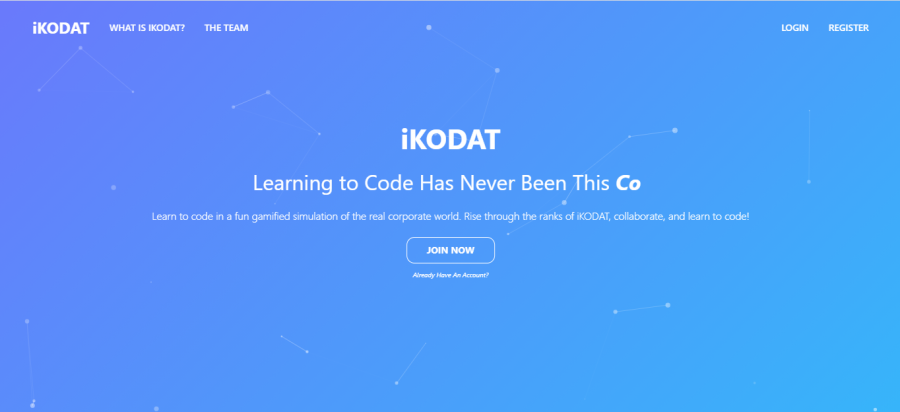Humans of Chantilly: Kai Fergerstrom
November 11, 2020
What inspired you to create iKODAT?
“I’ve been on the school’s robotics team for 4 years. As a junior, I was the programming captain, and I observed a lot of ways that people learn to code. There were some members that came in as full-fledged developers with multiple apps developed; however, the majority of the members entered the team with little to no programming experience. And when COVID hit, our robotics team could no longer meet. I wanted to retain some normalcy on the robotics team during the pandemic, so I started hosting online lectures and using this prototype hackathon format, where everyone created and shared their own projects, compared their code, and collaborated. This format was super successful, everyone loved doing their own lessons and showing off their projects. That’s when I realized that a platform of pure collaboration through solving problems together could be spread out to help all programmers. So that’s when I started developing www.iKODAT.com.”
How is iKODAT structured?
“iKODAT is a gamified rank-based educational corporate simulation platform to help students to learn to code. Users join a simulated company iKODAT—a futuristic startup. Users start off as an intern and rise up the ladder against others. There are two primary ranking ladders on iKODAT. One is titles: Intern, Junior Developer, Vice President, CEO, and the other is salary. When users complete challenges, several factors are calculated into their salary increase or merit increase. iKODAT rewards users who solve problems in fast and efficient ways. I really believe iKODAT teaches programming in a way unique compared to most other computer science educational providers. Most coding courses solely teach you the tools to program: how to do iteration, string concatenation, object-oriented programming in a certain language; however, the central issue is that students one-dimensionally learn the skills without an outlet to apply the skills. iKODAT is that outlet.”
What do you think sets your website apart?
“Trust me, there’s a lot of amazing educational providers for programming, and obviously they work because they have millions of happy users. But the difference now, since programming is becoming normalized for all students, there is a surge of diverse people that have different learning patterns. I remember learning to code, and I could never remember how to do something without applying it to a project. Many people learn by doing, and without anywhere to apply skills, people forget it. That’s what sets iKODAT apart. Students fall into traps of taking long drawn out courses that go deep into every aspect of Java, or other programming languages. iKODAT’s course is not memorization but creation. Hypothetically speaking, most courses teach students how to hammer nails, glue wood, and measure dimensions, but if students were challenged to build a house after, it would be difficult. iKODAT teaches to build houses instead, and by experience, students will learn how to use the tools as a byproduct.”
Why do you enjoy coding?
“I didn’t get into coding because of the popularity of computer science. To be honest, when I was little, I wanted to be a soccer player, as is every elementary schooler dreamt. However, I didn’t start learning to code for the industry’s great job prospects. I kind of just stumbled into it. At the time, I had a lot of issues focusing in school, but I eventually discovered my true passion for creating things. I like observing stuff and what is going on in the world. Programming became one expression of my creativity. Anyone of my ideas, whether it was converting a board game to a video game in 4th grade, I could make a reality through code. Programming in no way feels taxing, I’ve gotten to a point where programming doesn’t feel like work; it’s a genuinely fun experience.
Why do you think it’s most important to learn how to code?
“I truly believe that the most important skill is to be able to observe. In general, to skill to observe what’s going on around you. You don’t necessarily need to start learning to code right away. Creativity can be expressed through a multitude of lenses: Art, English, Writing, or Engineering. It’s as simple as observing small problems in your community and asking questions: how can I improve that? In no way will iKODAT in its current state take on Microsoft or Facebook, but it serves a purpose, helping other people. I urge everyone to try to observe and fix small problems around them. That’s why I think people should learn how to code because it is so powerful to aid the process of creation.”



